- Category
- War in Ukraine
How a British Prisoner of War Survived Death Row and Exposed the Brutality of Russian Captivity
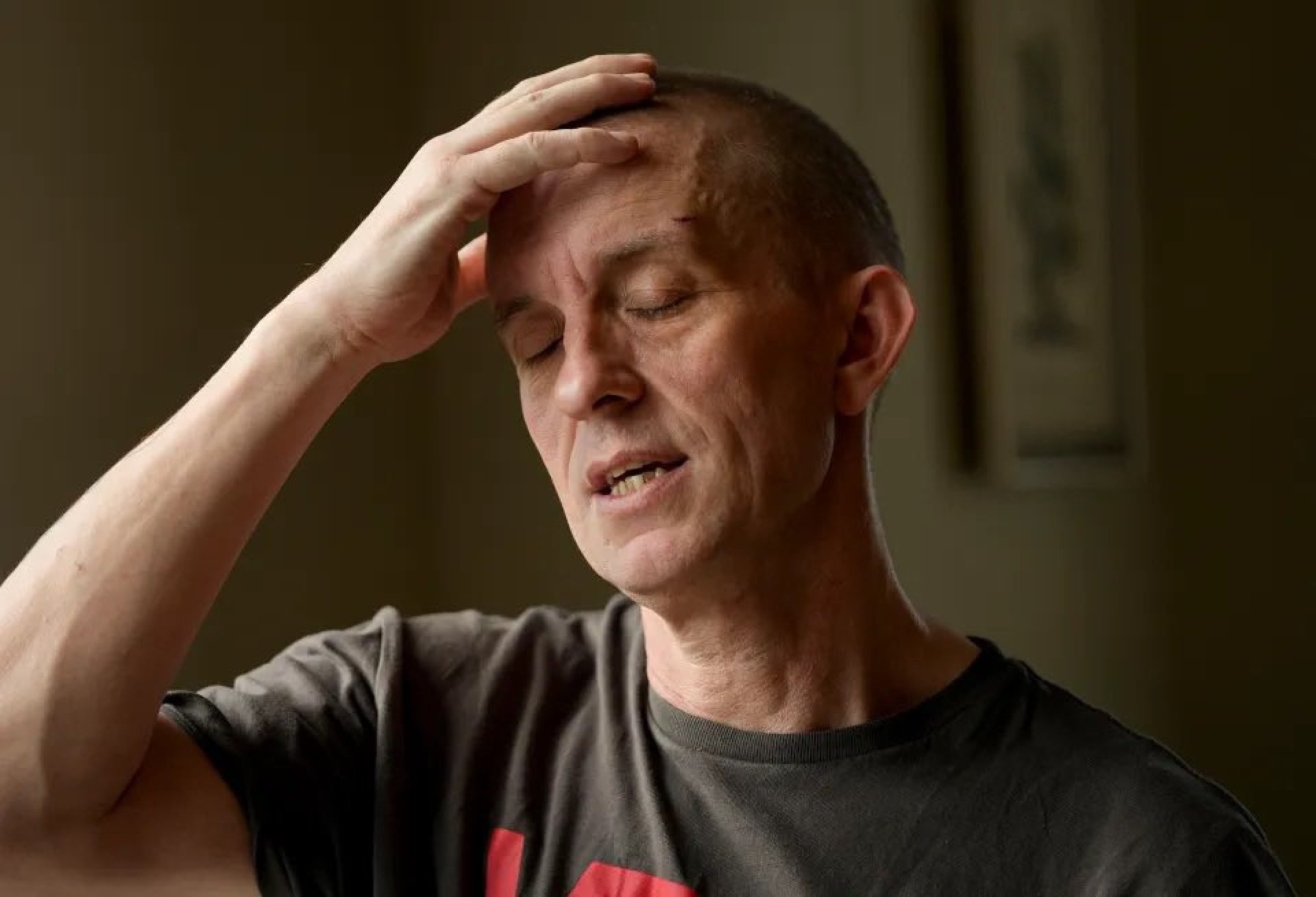
Thousands of Ukrainian soldiers, medics, civilians, and volunteers remain in Russian captivity, enduring systematic brutality and torture. We learn about the harrowing experience of a British prisoner of war who survived this ordeal and hear from a lawyer fighting for justice and POW exchanges.
Shaun Pinner, a British veteran who fought in the siege of Mariupol in Ukraine’s 36th Marine Brigade, was captured by Russians in 2022 and then sentenced to death by the self-proclaimed “Donetsk People's Republic” (DPR).
Nestor Barchuk, a lawyer in Azov’s International Department, specializing in International Law explains how Russia repeatedly violates international law. He advocates for Russia to be held accountable for its war crimes and for the exchange of prisoners of war (POWs).
Our reporter Zhenya Melnyk went live with our guests in the studio:
How many Azov fighters are still in captivity?
Nestor: There are still up to 900 Azov soldiers being held in captivity in jails and places all over Russia and the occupied territories of Ukraine. More than 100 of them are convicted, as Russian law enforcement said, as being part of a “terrorist organization”.
Shaun, how is your recovery process? Can someone fully recover from what you have experienced in captivity?
Shaun: I slept like a baby since being exchanged. I was in the British Army for 9 years. I was also trained in resistance training, SERE training, at the latter years of my military career.
I was 48 when I was captured by the “DPR ” so I'd had an extensive background in the military for 13 years. Nine war tours, four of which were on the frontlines in Ukraine, two of those as a commander in a position on the frontlines.
If I was going to get captured, I knew exactly the sort of things I was expecting, what Russia was all about, and it wasn't going to be the Ritz-Carlton. I teach on it now, written a book about it and it's therapeutic for me to talk at conventions. I've just come back from the Veterans in the Road to Recovery Convention in Lviv.
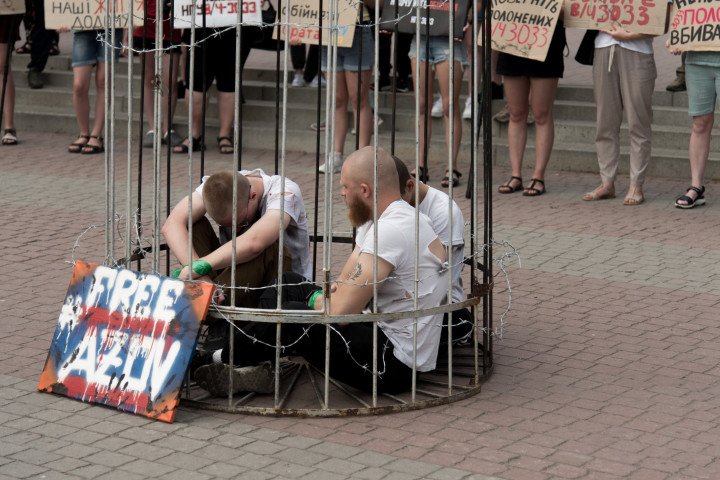
Some believe that the Free Azovstal Defenders movement is only for people from the Azov Brigade and that only Azov soldiers were captured. Is this true?
Shaun: I can talk on a personal level because I was there. The Western audience generally would have heard of Mariupol but not necessarily know the intricacies in the defense of Mariupol in its total.
They will have heard of Azovstal because it was the last bastion of resistance in Mariupol, and the media put it on that pedestal at the time and gave it the coverage.
People in the UK think I was in Azovstal but no, I was in Ilyich . To say that Azovstal or Ilyich was only full of the Azov brigade is not true. It was full of friends of mine from the Marines, the National Guard, the police, civilians, etc.
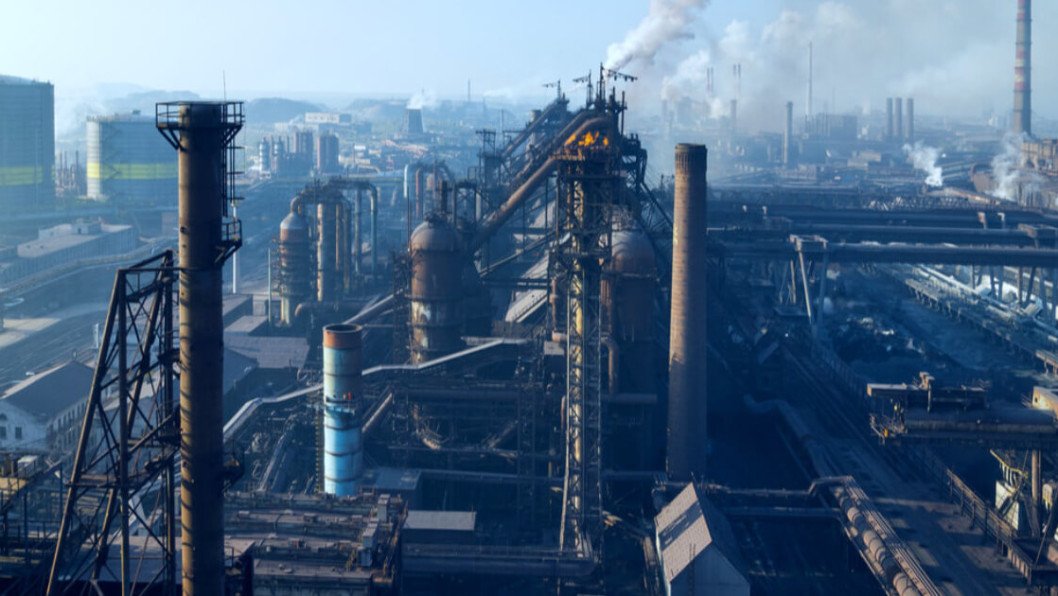
Are Azov soldiers treated differently from other POWs?
Nestor: There is particular hatred and especially harsh treatment of Azov POWs because the unit holds symbolic weight for Russians. It was one of the volunteer battalions that prevented Ukraine from falling at the beginning of the war in 2014, the defense and liberation of Mariupol in 2014. In 2022, Azov again heroically defended Mariupol for nearly three months under complete encirclement, dealing significant losses to the enemy and buying Ukraine valuable time to mobilise its forces during the critical early months of the full-scale invasion. The unit has a great history, making it the target of propaganda, for hatred, for Putin’s false narrative.
That’s why Azov soldiers are exchanged very rarely. The last time was in September and October 2024, and before that, in May 2023, almost a year and a half prior.
I believe Russia decided to put Azov soldiers on the exchange list recently because of the success of the Kursk operation. Normally, they are not very likely to exchange our soldiers, unfortunately.
😡The russians in Donetsk again “tried” Ukrainian prisoners of war
— Jürgen Nauditt 🇩🇪🇺🇦 (@jurgen_nauditt) March 18, 2024
The so-called “Supreme Court of the DPR” sentenced 10 Ukrainian prisoners of war from “Azov” to imprisonment for terms ranging from 26 to 27 years. pic.twitter.com/xLv2m6AgSO
What are the main misconceptions that you've encountered in Western media?
Nestor: Misconceptions about Azov and Ukraine are products of Russian propaganda. Russian oil dollars and billions of investments in those false narratives fuel the myths about us and Ukraine.
The most popular myth is the far-right Nazi ideology of Azov. The “de-Nazification” was also one of the goals of the war that Putin declared at the very beginning of the war. This propaganda to a huge extent was successful because Azov was stripped of Western arms and Western training in 2017, the ban was lifted by the US only this summer after no real evidence was found to support the allegations of Nazism. All these years, Azov fought exclusively with Soviet-era weapons, translating NATO military science and training according to Western standards. Had Azov been equipped with Western weapons from the very beginning, I believe the frontline would look different today.
The Russians are still stating that Ukraine is a Nazi country trying to disrupt Western support as the topic is very sensitive for Western communities. However, the Russians label Nazis anyone who simply refuses to adopt a Russian identity.
Shaun: I'm married to a Ukrainian, we lived in Mariupol, we had a house on the left bank, I pay my taxes here. I was an intricate part of the military here, long before the invasion.
Before captivity, I was not a social media guy or a commentator in any sort of way, I detest it in a way, but it's a necessity now to combat Russian propaganda. Before I had to stay under the radar because I was in the military, so I really couldn't be in the public eye, now my following on social media has rocketed, only because I fight those false narratives.
Another myth is that Russians are coming to save Russian speakers. I am a Russian speaker originally because most people spoke Russian in Mariupol as a first language. My wife is a Ukrainian who speaks Russian, and Ukrainian, she and my community identify as Ukrainian.
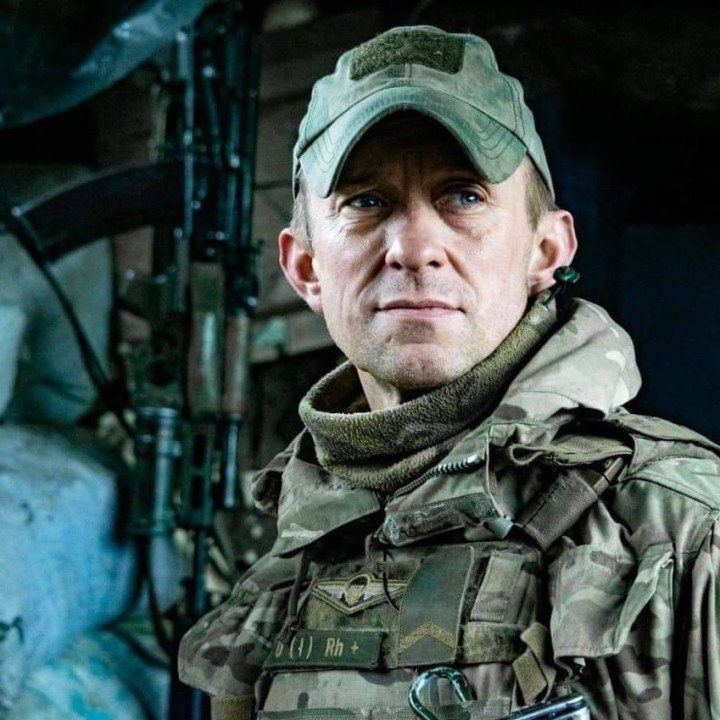
In your opinion, how is Russia still so successful in its false narratives and why do so many people believe it?
Shaun: Without getting myself litigated, they brought in all these Western-accented propaganda guys to be paid to spill this narrative, to resonate with the West before the full-scale invasion. I can name several people from England, and America who spout this garbage, who don't understand Ukraine or the culture, or where I lived. They know who they are.
Aidan Aslin was interviewed by Russian propagandist Graham Phillips, it's the most uncomfortable watch you will ever see.
You're not given a choice as to whether you want to talk to these people when you're in captivity. You're pushed in front of them with no choice. They are an extension of the government like RT is—and they're an intricate part of the torture process.
You have to become a politician in a way, to be quite gray and bland and not denounce your loyalties to Ukraine. It's a very difficult situation to be in when you're being used for propaganda. They use propaganda photos of me now.
You know it's somewhat comical, I remember how he asked me in the video if I had asked for him to visit and in return I gave the most convincing yes, However he never expected me to be released, nor the response he received from his Stupidity.
— COSSACKGUNDI (@cossackgundi) September 8, 2023
In the second photo it shows a… pic.twitter.com/6qvbSch6oO
Media propagandists interrogate you with the very people who are doing the torture, the electrocutions, the starvation – they're behind a camera.
Shaun Pinner
Moscow Convention criticizes the ICRC and the UN quite heavily for being insufficient in their actions. What is the project and have you had a response from them so far?
Nestor: The Moscow Convention is an allusion to the third Geneva Convention, relative to the treatment of prisoners of war. This book was to show how international humanitarian law foresees the treatment of prisoners of war, and then show the reality of how the rules and provisions are applied.
The book takes particular articles of the third Geneva Convention, for example; “POWs have to be treated humanely”, and then we rephrase it to “POWs shall be subject to torture”, providing testimonies of people who were POWs.
We highlight and emphasize that the International Commitee of the Red Cross (ICRC) is not doing anything, international humanitarian law is not working. The ICRC is very silent, it's resistant to public shame. If I'm not mistaken, the representatives of the ICRC were invited to the presentation of this book, however they didn’t show up.
📕The Moscow Conventions – one more attempt to show the world the consequences of a 'neutral' attitude to crimes against humanity. If we continue to ignore Russia's violations of the Geneva Conventions, it will mean that we are living in a new reality where torture are allowed
— Асоціація родин захисників «Азовсталі» (@AzovstalFam) November 21, 2024
⤵️ pic.twitter.com/TbuZqF7tco
POWs have criticized the ICRC for not officially taking details and notifying families during POW exchanges, as per their duties, what was your experience with them?
Shaun: During captivity, we were not given access to any humanitarian aid groups, none at all, we didn't even have a toothbrush, toothpaste, or anything up until we changed prisons.
Only before the trial did we manage to get some basic washing gear. Not so much as even clothes were donated, we had to get them off fellow prisoners who didn't like the way we were being treated.
My family had good updates through our foreign office. At the time, Russians were trying to get Britain more involved and be responsible for us. We initially thought we were taken as a prisoner of war but eventually became hostages, which was quite easy to see when you're in captivity.
My family had no dealings with the International Red Cross, as far as I know, they still, even after my exchange, haven't contacted my family. I'm not going to blame them entirely because if Russia doesn't want them to have access to you, then you're not going to have access.
However, my friend who was in Azovstal said that the Red Cross was an intricate part of the surrender deal. He’s got so much hatred for the Red Cross because he said that they were there. He was segregated, filtered off, and taken to Donetsk never to be seen again with nobody even contacting him.
Nestor: The Red Cross failed so many times to register POWs. We lost track of most of the Azovstal defenders. The ICRC does not fulfill its mandate. The ICRC never condemned Russian war crimes or the breach of the Geneva Convention on the treatment of POWs. It has never publicly stated on international platforms that it can’t gain access, go to Russia, or fulfill its mandate.
Shaun: There's almost like a code of silence between a lot of agencies about what's really happening. It's wrong to chastise everybody but there are very few statements going out. People are starting to realize that and start to ask questions. It's important to raise those topics on social media now and get people talking.
This year, when the Americans found Russian money influencing certain entertainment companies in the US. How far does that go? They have a major influence over the younger generation in the US. Like Tim Pool, if he’s saying that they're all Nazis in Ukraine, they're going to listen to that, and who's fighting that? We must fight that because it's just frankly, not true.
Nestor: The Ukrainian Red Cross is doing a great job. We have to distinguish between the Ukrainian Red Cross, International Committee of Red Cross, and the Russian Red Cross—which has ties to, and is financed by the Russian government.
I read a few investigations into the Russian Red Cross, one of the leaders of the Russian Red Cross, before joining at the beginning of the war, was part of the board of the organization that holds the trademark on the “Z ” sign which is hilarious.
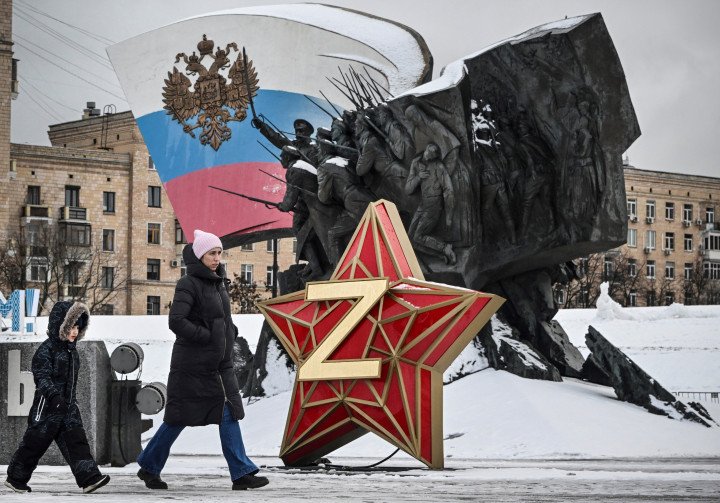
Russian forces often make videos of POWs under duress for propaganda purposes, how would you describe the situation that you were in?
Shaun: I wanted to get on TV to tell the world where I was. It was also a good time for me to try and sustain my life because, for 60 days, we only had bread every other day if we were lucky.
When we were being pulled out for propaganda at 9:00 in the morning and the bread came in at 10:00, we were missing that bread for that day, and then we went for 3 or 4 days not eating a thing.
When we would do the propaganda videos, they would give us a burger, film us, and say, “look, this is what we're doing, this is how we treat them”—it's dehumanizing, it's degrading.
When the cameras are in there, the very people that are doing the torture are in the room, so in my case, Roman Kozyrev was a very known RT guy. He knew all my torturers who were beating the crap out of me. When I was taken home, you could see all of the scars that we had, the War Crimes Commission took pictures of all of them.
No Prisoner of War should be beaten or tortured, let alone by someone in PRESS marked body armour.
— Shaun Pinner (@olddog100ua) December 3, 2024
Russia use RT, (Russia Today) in pretty much a similar way, you don’t get a choice and they plonk you in front of a camera while forcibly interrogating you with the very people… https://t.co/jzGwc1P5cj pic.twitter.com/D6TJGgkkbf
Did you have a chance to speak to other fellow POWs who didn't have training and somehow support them during captivity?
Shaun: I couldn't tell anybody my background because they would take you out to do propaganda, then they would beat the guys up in your cell to try and find what information you told them. Nobody in your cell was a friend in effect, you have to be very careful with information.
When you’re the one with any idea, you become a sounding board for people in the same environment. If you’re deemed to be a leader within that group, you can get yourself in a lot of trouble. You have to remain gray, in the background, and not become that leader but generally help people in other ways.
Russians don't use torture as you see in the movies, it's not torture to get information for pain. They torture us to get us to admit to things we didn't do, and being in places we weren’t at. It is very effective, which is why you see everybody being pulled for sham trials and pleading guilty.
No one is saying “not guilty” because it's electrocution, stabbing, starvation, sleep deprivation—you name it, the list goes on. They use enough of it to get the soldiers to plead guilty because they just want that pain to stop.
Shaun Pinner
They put you out on RT, pumping you out to millions of people before your trial to get public opinion. Of course, the decisions are already made by the Russian people.
I never set foot outside the country. I had legal status, how could I be a mercenary? I'm married to a Ukrainian and pay my taxes here, yet, I was charged as a Nazi mercenary and a terrorist.
British citizens Aiden Aslin and Shaun Pinner, and Moroccan national Saadoun Brahim, all of whom fought on contract with Ukraine’s military, have been sentenced to death by the Kremlin’s puppet authorities in Donetsk in show trial that lasted mere days. They were not mercenaries. pic.twitter.com/QYGOEkHXHE
— Christopher Miller (@ChristopherJM) June 9, 2022
Talk us through your conviction and what it was like being sentenced to death.
Shaun: The most dangerous part of the whole process is the initial capture. I knew that if I got through that, then it might get a bit easier. From the point of capture by “DPR” soldiers, I was handed to the Russians.
I knew they were Russian armed forces because they had their army fatigue, they didn't have patches on and they all looked totally different from the “DPR” soldiers.
If you talk to other cellmates I was with, they were interviewed by colonels of the Russian military and prosecutors of the Russian military. Suddenly a decision was made that we were going to be used in a sham trial and sent to the “DPR”.
They wanted to draw Britain into war and recognize the “DPR” as a state, and they had hostages to do that. We were used as a tool.
Fast forward several months, we got put on trial and in two days we were given the death penalty, which was a total sham trial. It was just ridiculous. I was told my lawyer was a man but when I went to trial, it turned out to be a woman who I had only met once.
She never even introduced herself to me, never took a statement, never took the contracts that my family and the Ukrainian government had sent to Russia to prove that I was a Ukrainian soldier. It was a loaded trial straight from the off with theatrics and everything.
We were settling in, but I had the death penalty over my head. From July through to September, I didn't know if I was going to get an appeal or whether I was going to be shot that day.
Shaun Pinner
Around September 21st, we were told that we were going on a long journey, we didn't realize that we were going to be exchanged until the door shut on the plane and they explained to us what was happening.
I talk about it matter of fact but it's very serious, it still hurts, it's very emotional. Most of my battalion is still captive, we're still working to get those guys out. We know that after three years they're going to be in a terrible state and there's not much that we can do about it.
Russian social media trolls love sending me pictures of me! This the latest!
— Shaun Pinner (@olddog100ua) September 8, 2023
For some reason they think it’s derogatory and insulting!
For me it’s a part of my life. We succeeded in defending Mariupol for as long as we could and it provides further evidence of the inhuman… pic.twitter.com/rvrUf28phX
I heard you might be visiting Russian POWs. What will you say to them?
Shaun: I'm certainly not going to go in there and start electrocuting people. I want to just see how we treat them in comparison, talk to some of the prisoners, find out what their motivations are for fighting, and understand what's driven them here.
I’d like to talk about the situation there compared to my captivity because I understand more than anybody what it’s like to be a prisoner. I've also seen the propaganda on the Russian side. I’m able to dispel those narratives that they've been told. When I was in captivity a guy who fought in Debaltseve for the “DPR” did really help me.
I had very bad dysentery , I was in a very, very bad way. He didn't need to help me but he gave me vitamins, medicine, clothes that his wife brought in and just said—“we're not all monsters.” Some people just don't like the way you're being treated.
I want to go and see how they're being treated so I can put a comparison in place, and then tell as many people as I can what's happening in Ukraine.
How have you supported Ukraine since your return from captivity?
Shaun: We don't fight anymore, I’ve long-term health problems due to injuries sustained in in my captivity. I've got problems in my back, and digestive system, I can't see from my right eye properly from the battle of Mariupol, nothing serious. I'm carrying those those injuries around with me, but they should clear up.
I can do more damage doing what I'm doing now, talking about the atrocities, talking about what happened to us, talking about raising awareness of the POWs, and humanitarian work.
I work with Chris the founder of Prevail, a de-mining charity and humanitarian aid charity, with a main focus really on mine awareness with civilians and de-mining training with government agencies of Ukraine, including the police.
We have ambulances that help stabilize casualties, transporting those casualties back from the frontlines, and bringing them back to hospitals. We're hand-to-mouth at the moment with money, we're looking for long-term donors.
I sort of go back to my roots and help train, and talk to armies across NATO about being captured, what it's like, and what they can expect when they come to work in Ukraine.
I understand why you do this work but wouldn’t it be easier to go home and rest?
Shaun: People from Syria come to the UK to avoid the war, and people from Africa come to the UK and Europe to avoid conflict there, so people still don't understand why a Brit would be living in Ukraine.
There's nothing like a spring in the summer in Ukraine, I'm married to a Ukrainian. You know, I didn't have academic schooling, my schooling was the military and I can give some of it back to the military.
I spent more time here than I ever did in England, so it's become my home. Mariupol was my home, I don't think I could live with myself if I had just deserted and left them after Mariupol. I can't fight like I used to now, but I can fight in a different way.
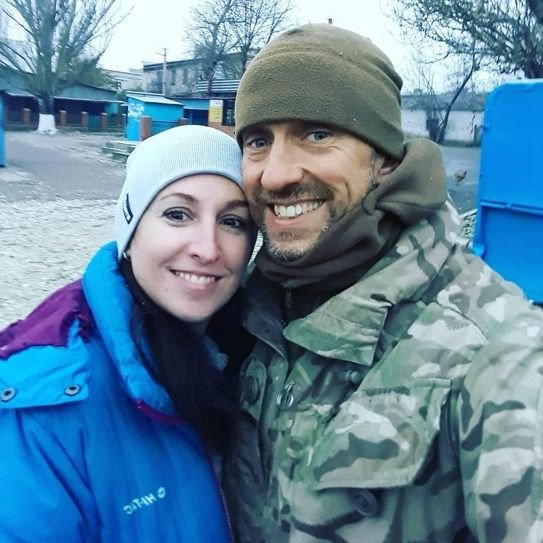
Is there any justice or accountability for the Olenivka tragedy?
Nestor: NGOs have urged the International Criminal Court (ICC) to start the investigation, which I think currently, is the best international mechanism to hold the guilty accountable for the Olenivka tragedy.
Maybe some other tribunal ideas will come up in the future. The ICC has already issued arrest warrants for Putin and Maria Lvova-Belova, two criminals, for kidnapping.
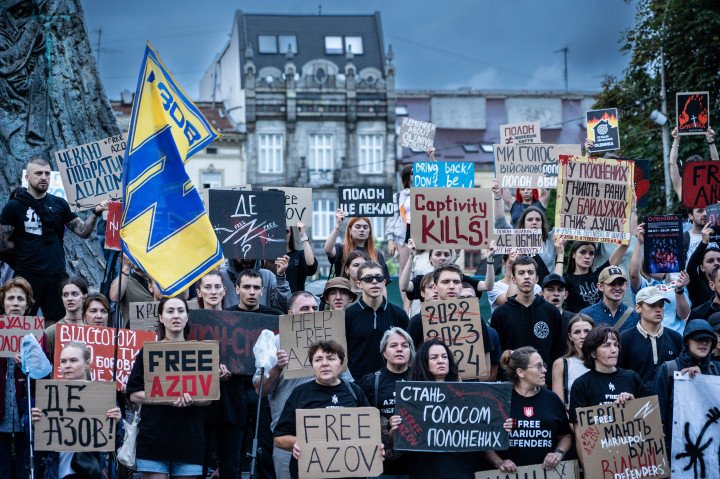
How can a regular person help the Free Azovstal Defenders movement?
Shaun: Circulate the photos of POWs from camps on social media, and tell everybody about what's going on. Those pictures of the emaciated, pale, skinny prisoners have resonated well.
You can support families of current POWs and donate. We put them in the direction of charities where they can get funding. They're never going to replace loved ones but some people have nothing, so you can help that way.
Nestor: Spreading the word and raising awareness with decision-makers, politicians, and academics, helps a lot. Take part in the Free Azovstal Defenders movements and rallies.
War is not far away, it's not a Ukrainian war, it’s a war for all of the civilized world—against dictatorship. It's not only a Ukrainian matter because Russia will move forward, they will try to challenge NATO and Western countries, so support the armed forces, and support Azov.
As we learned during the revolution of dignity, we're all drops in the ocean and there's no donation or help too little, it all counts.
Nestor Barchuk
Spread the word about Ukrainian prisoners of war and the inhumane conditions they endure. Share their stories with your friends and networks to raise awareness and keep global attention on this urgent issue.
Take action by organizing or joining rallies in your city to demand the release of Ukrainian prisoners of war.
Hold the International Committee of the Red Cross accountable - call on them to fulfil their mandate and gain access to Ukrainian prisoners of war.
Support Ukraine’s defenders by donating to Ukraine’s armed forces and support Azov. A Ukrainian victory is the most effective path to bringing all our prisoners of war home.
Free Azovstal Defenders rallies take place every Sunday in Kyiv and all over the world, follow their social media to find the nearest rally to you.
Donate to the unit of the Azov Brigade.
-46f6afa2f66d31ff3df8ea1a8f5524ec.jpg)

-554f0711f15a880af68b2550a739eee4.jpg)



-206008aed5f329e86c52788e3e423f23.jpg)
-1afe8933c743567b9dae4cc5225a73cb.png)